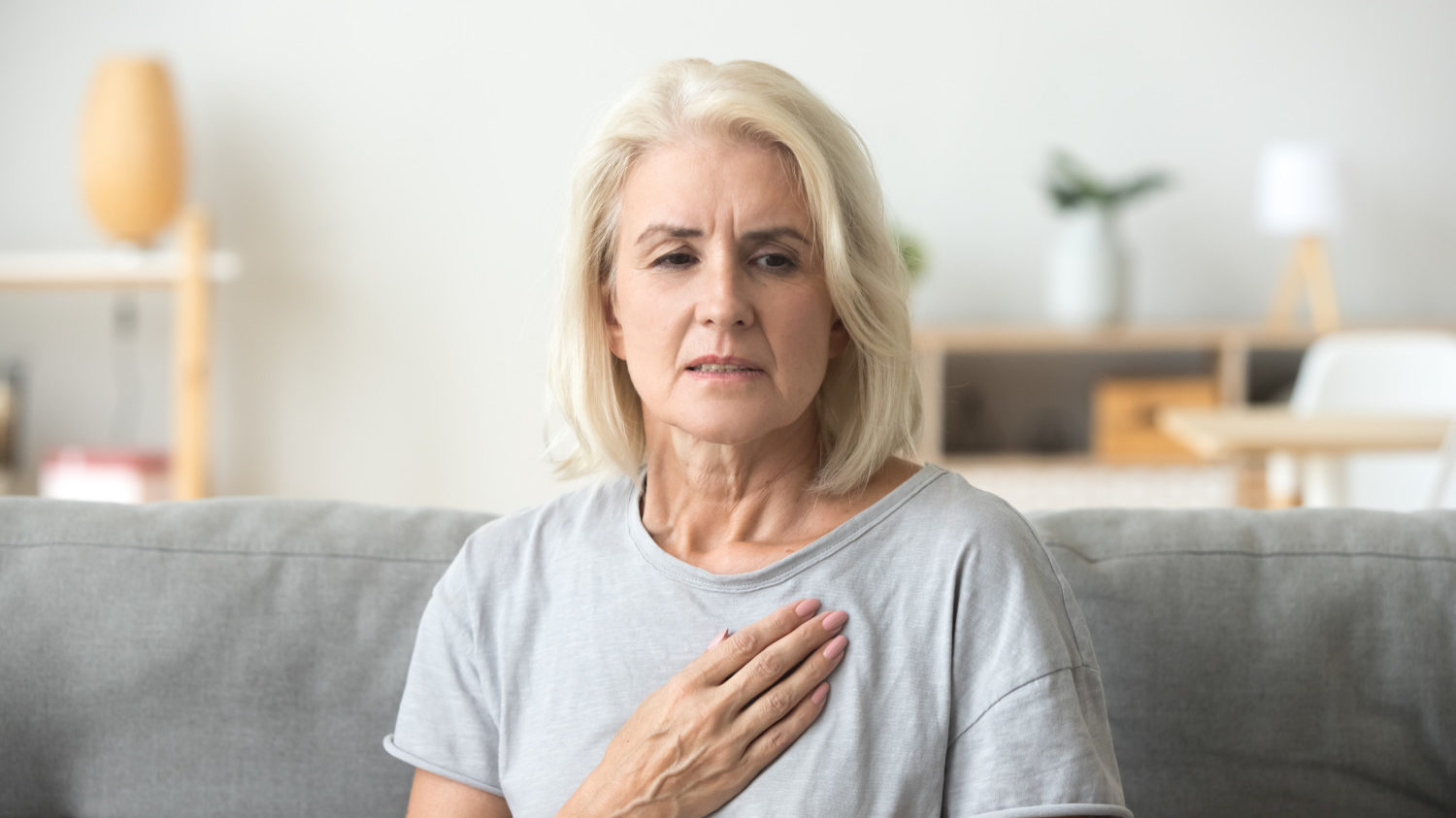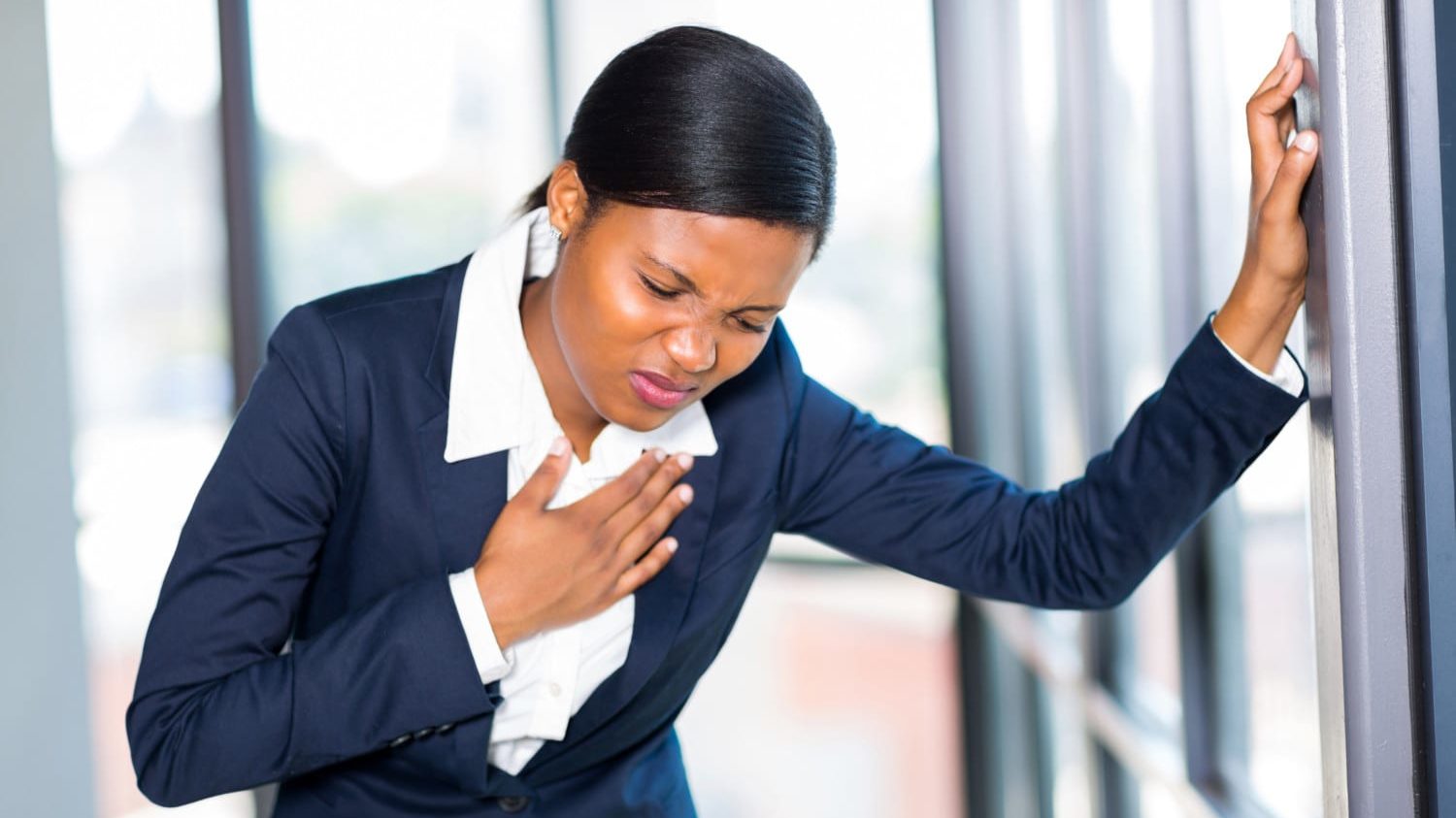How to recognize the warning signs of a silent heart attack

You may know some of the classic symptoms of a heart attack: Pressure, tightness or an aching sensation in your chest or arms, shortness of breath, cold sweats, lightheadedness or sudden dizziness. But, did you know that it’s possible to have a heart attack and not even know it?
In fact, “silent” heart attacks are quite common, accounting for 45% of all heart attacks, according to research published in the American Heart Association’s journal Circulation.
“Silent heart attacks are cardiac events that don’t give off warning signs like sharp chest pain or pain radiating down your left arm, leaving them easy to miss or assume they are something else,” says Dr. Stephen Sinatra, an integrative cardiologist with Healthy Directions and co-host of the Be HEALTHistic podcast.
With heart health getting its own month in February, here’s what else cardiologists want you to know about silent heart attacks and how to prevent them.
How serious are silent heart attacks?
A silent heart attack happens when blood flow to the heart muscle is cut off completely or severely reduced — but occurs without the accompanying symptoms we commonly associate with heart attacks. The outcome of a silent heart attack is just as bad as a heart attack, according to the researchers from Wake Forest Baptist Medical Center in Winston-Salem, North Carolina, who published their findings in the 2016 Circulation study.
But, because some patients don’t know they’ve had a silent heart attack, they may not receive the treatment they need to prevent another one. Because of this, those who suffered from a silent heart attack had triple the chances of dying from heart disease later in life, according to the findings published in Circulation.
If silent heart attacks are discovered it’s oftentimes not until months after they’ve happened, and they may be found through tests like an electrocardiogram (an EKG) or an echocardiogram, which is ultrasound of the heart, says Dr. Sameer Mehta of Denver Heart, who is currently the director of Cardiac Catheterization Lab and co-director of the Amputation Prevention Center at Rose Medical Center in Denver.
Are there any signs of silent heart attacks?
Symptoms of a silent heart attack tend to be unclear and vague and can mimic other health issues, so people often fail to connect it with a heart issue, cardiologists explain.
For instance, a silent heart attack may manifest with symptoms that could be confused for the flu, Mehta says. Other atypical symptoms could be fatigue or indigestion, or, of course, there could be no symptoms at all, he says.
Here, according to Sinatra, are some more potential symptoms of a silent heart attack:
- Discomfort in the chest, neck, upper back or arms. This discomfort might be recurring and may last for a few minutes to a few hours.
- Feeling the need to burp for relief.
- Dental problems, such as discomfort in the jaw or teeth, that have a sudden onset.
- Shortness of breath that you’ve not experienced in the past.
- A cold sweat.
- Feeling nauseated or dizzy.
- Feeling angina — which is a heavy pressure feeling on your chest — during exertion could be a warning sign that you have restricted blood flow to your heart, which could lead to a full-blown heart attack.
Also, women are more likely than men to have ill-defined and vague symptoms, Sinatra says.
Something else to keep in mind: A key feature to help distinguish heart troubles is that cardiac symptoms are almost always made worse or are provoked by physical activity, says Dr. Evan Jacobs with Conviva Physician Group.
“When we ask our hearts to do more work, that should provoke the symptoms if they are truly coming from the heart,” Jacobs says.
Also, people with diabetes, in particular, are frequently affected by silent heart attacks, explains Dr. Shon Chakrabarti, a cardiologist previously at Beth Israel Deaconess Medical Center in Boston and Medical Director at Abiomed.
“Uncontrolled blood sugar can affect the nervous system, and how a diabetic perceives the symptoms of a heart attack can differ significantly from someone who doesn’t,” he says. “Some diabetics can have a mild to moderate heart attack and never feel any traditional symptoms.”
How can you prevent silent heart attacks?
The same risk factors are present for both those with and without symptoms during a heart attack, explains Dr. Steven Reisman with New York Cardiac Diagnostic Center.
“Those who are prone to a silent heart attack include those with high blood pressure, diabetes, high cholesterol, family history of heart disease at an early age and obesity,” he says.
Here are some cardiologist-approved tips for preventing heart attacks, including silent heart attacks:
- Maintain a healthy body weight: Even losing just 10 pounds can help reduce your risk, Sinatra says. Belly fat is risky because it produces hormones that can lead to inflammation, he says.
- Eat a heart-healthy diet: Focus on meals that are rich in heart-healthy omega-3s and fresh vegetables, Sinatra says.
- Exercise: When you work out, you lower your blood pressure. Mehta says research shows 2.5 to 3 hrs a week of moderate-intensity exercise, such as walking, significantly reduces the risk of heart attacks.
- Don’t smoke: Smoking promotes atherosclerosis, raising your risk of having a heart attack, Sinatra says.
- Manage stress: Practice meditation, yoga and breathing techniques, suggests Chakrabarti.
Of course, if you are concerned about being at risk of a heart attack, talk to your physician about measures you can take to reduce your risk factors.







